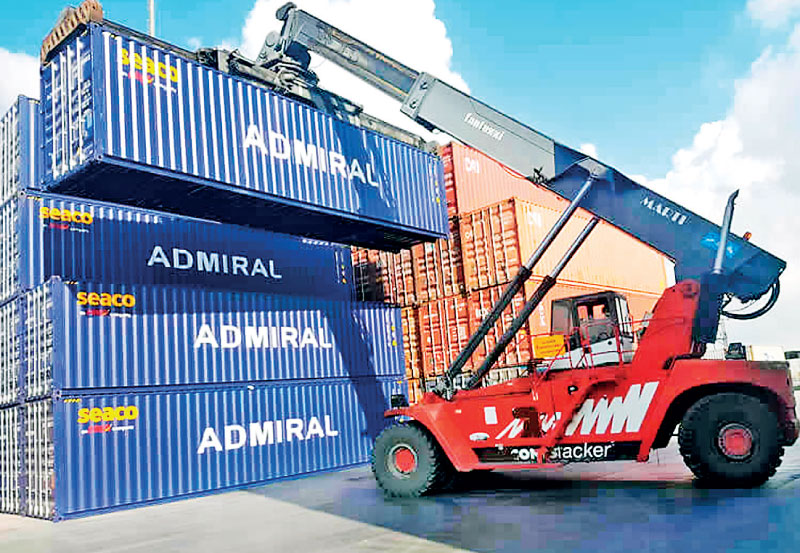Saturday Feb 21, 2026
Saturday Feb 21, 2026
Monday, 8 August 2022 03:10 - - {{hitsCtrl.values.hits}}

The crisis faced by the NVOCC lines operating to and from Colombo was featured in multiple articles since 11 February in the Daily FT. As mentioned, the crisis arose due to the International Feeder Shipping Line Operators imposing new conditions for the carriage of NVOCC line containers to and from the Port of Colombo.
As per the new conditions, Feeder Operator Agents will no longer pay the port handling charges on behalf of NVOCC Agents in Sri Lanka thus doing away with a 25-year-old commercial practice in the country. This leaves the NVOCC Agents having to obtain direct payment facilities with the three terminals in the Port of Colombo.
However, port terminal operators were not willing to offer the direct billing facilities to NVOCC Agents due to factors such as the licencing category currently held by NVOCC Agents, concerns of NVOCC Principal’s insurance covers, Principal’s fleet size, financial strength and volume commitments required among others.
Therefore, in order to find an acceptable solution to all stakeholders, the Ministry of Ports and Shipping together with Chairman – SLPA, intervened to form a Joint Committee headed by the Managing Director – SLPA which includes representatives of all three terminals (SLPA – JCT, SAGT, CICT), Director General Merchant Shipping (Licencing Authority), SLPA Finance, Sri Lanka Association of Vessel Operators (SLAVO), Ceylon Association of Shipping Agents (CASA), Ceylon Freight & Logistics Association (CEYFFA) and Sri Lanka Association of NVOCC Agents (SLANA).
We understand however, that the proposal submitted jointly by the three Colombo Port Terminals is not conducive for the NVOCC Line Principals and their Colombo Agents to obtain direct billing facilities.
Justifiably, NVOCC Principals are very concerned that Colombo which has claimed ‘Hub Port Status’ is not opening up the opportunity for legitimate port users, to have a gateway for their containers to enter the country. When all other Hub Ports such as Dubai, Singapore, Malaysia and Regional ports such as India and Pakistan have encouraged registered licenced shipping and logistics companies to have direct billing facilities at their respective port terminals. We also learn that when it comes to insurance, the Colombo terminals are biased in wanting NVOCC Principals to have similar coverage to that of Vessel Operator’s P&I cover, which is not required by any other Regional Ports.
The Regional Ports having recognised the NVOCC business model have made provision for one Agent to represent many operators at a port terminal. Colombo Port terminals however, insist on keeping separate bank guarantees for each and every Principal which is not commercially viable when conducting the NVOCC agency business.
Moreover, all other Regional Port Terminals including the Hub Ports such as Dubai, request for reasonable bank guarantees in their local currency. In comparison the three Colombo terminals insist on collecting US Dollar bank guarantees per Principal at each terminal. We understand that due to these requirements and many other factors, discussions at the Joint Committee, have come to a standstill. Fortunately, the Feeder Operator Principals have given a further extension to their deadline until 31 October purely as an assistance to the country’s trade, taking into consideration the adverse political and economic situation in the country during the past few months.
At this juncture the NVOCC Agents’ only remaining hope is for Ministerial intervention at the highest level.